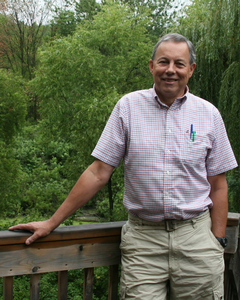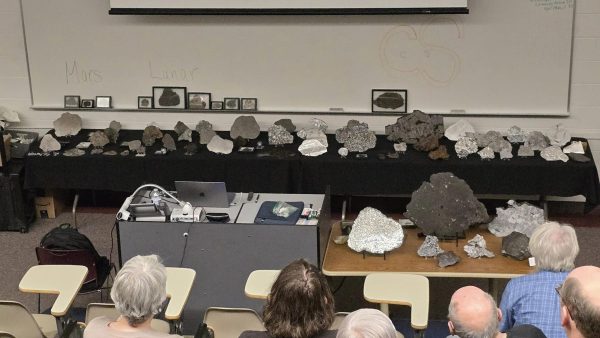Calvin professor speaks on God and chance

Prof. James Bradley has been a professor in the Mathematics department since 1986. Photo Courtesy calvin.edu.
Calvin professor James Bradley of the mathematics department spoke in front of a crowd of about 25 last Friday, Oct. 13, as part of Calvin’s Christian Perspectives in Science Seminar. Bradley’s lecture, titled, “Do We Really Live in a Deterministic World?” questioned popular Christian thought on randomness and in nature.
Bradley traced the history of the idea by noting John Calvin’s rejection of such undirected processes. Other prominent thinkers of Calvin’s day subscribed to so-called “naturalistic determinism,” which holds that, given all the data, everything in nature could be predicted.
Bradley paid special attention to various scientific definitions of randomness, explaining that while mathematicians view randomness as as event’s unpredictability, physicists explain it as the state of being without a cause.
Returning to theology, Bradley laid out different theories regarding God’s involvement in the events of reality. The discussion included “occasionalism,” which views God as the cause of every action; “Thomism,” in which God gives agency to things and only indirectly controls things; and “indeterminacy,” which says that random events are random even to God, but that God can still understand the randomness where humans cannot.
Toward the end, Bradley asserted his own belief that God uses this kind of indeterminacy in making our reality. Bradley speculated that God could have done this simply for the fun of it, and he compared this method of creation to a father giving a daughter a sandbox to play in, letting her discover it for herself.
Jesse Bloomster, a senior computer science student, found the lecture challenging.
“I found Jim Bradley’s discussion on the idea of a non-deterministic world to be pleasantly fascinating,” he said. “Although much was speculation, he gave a strong argument which left me thinking long after the talk had concluded.”






